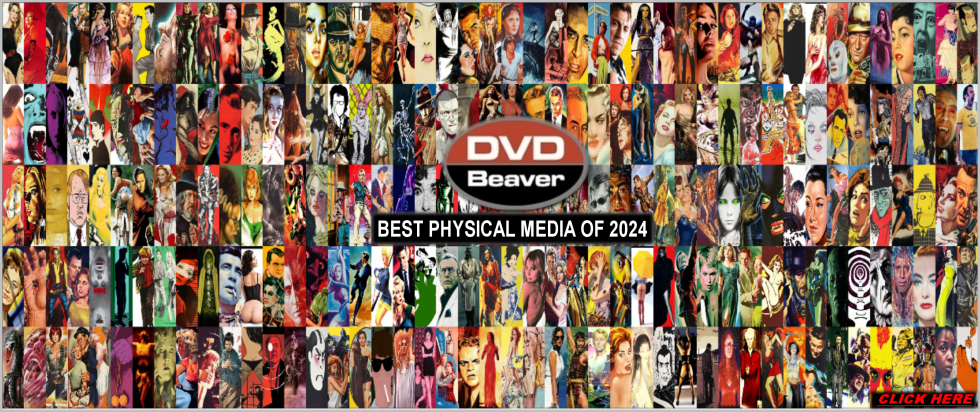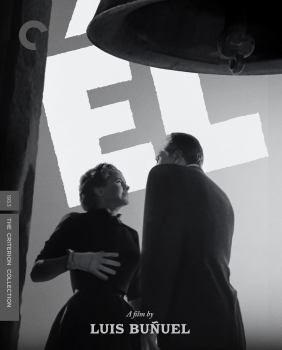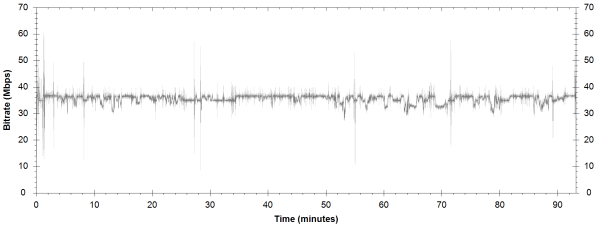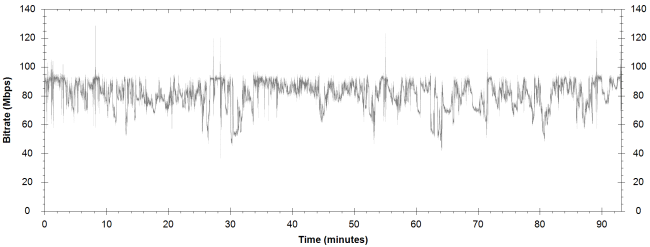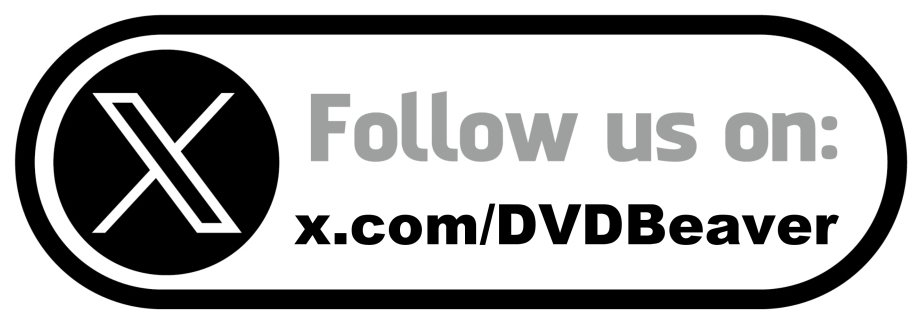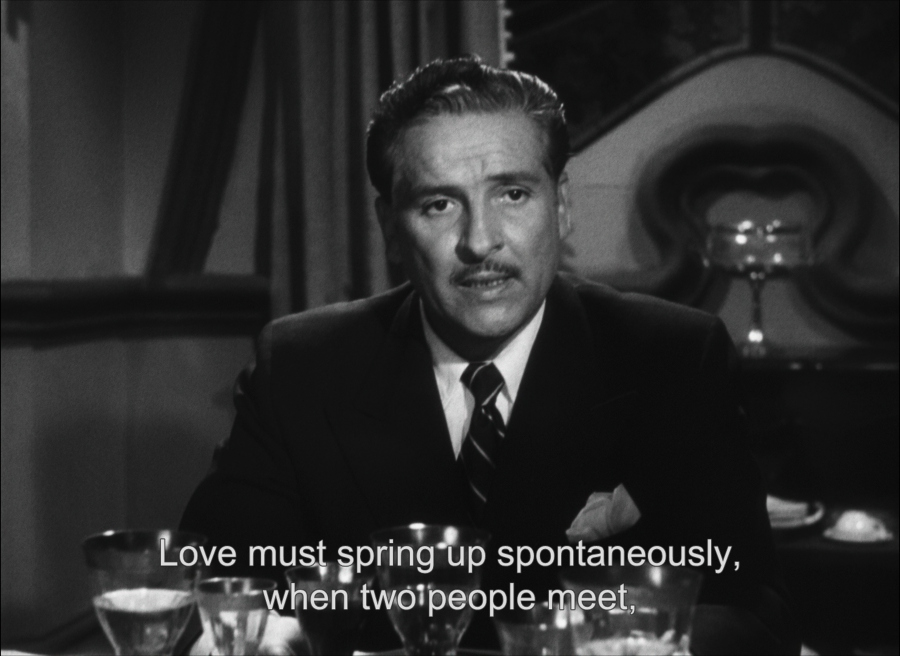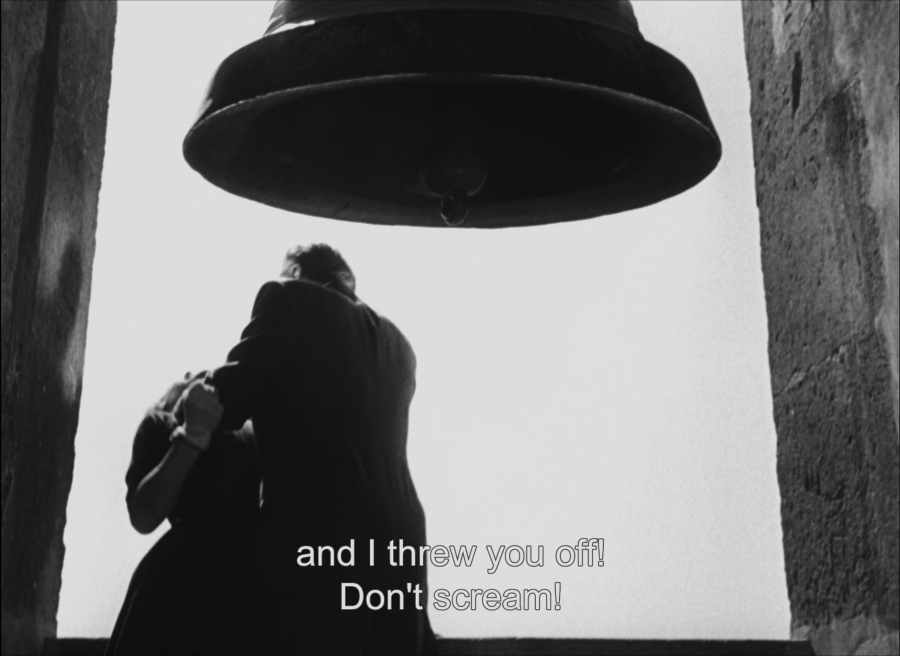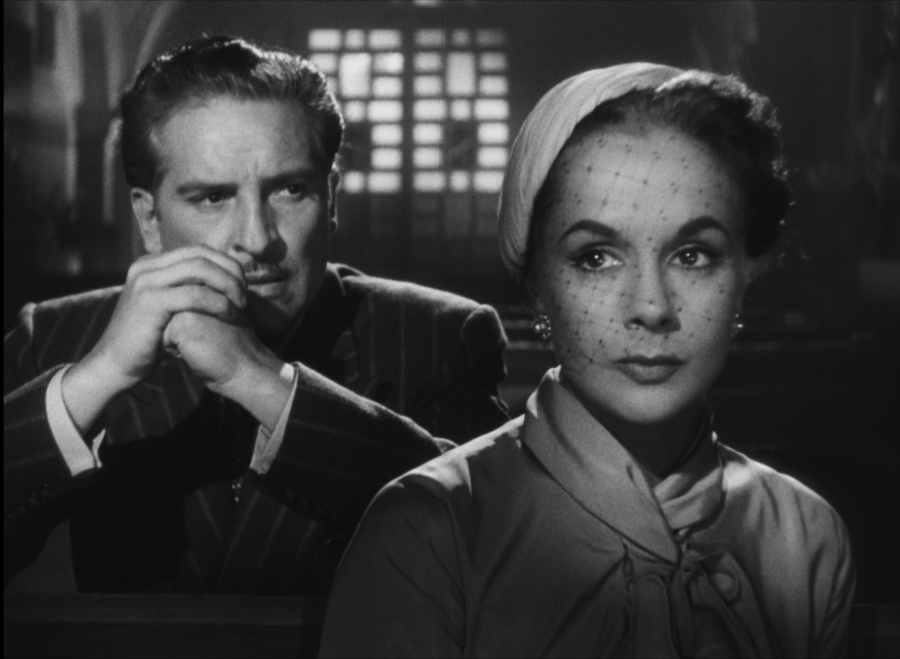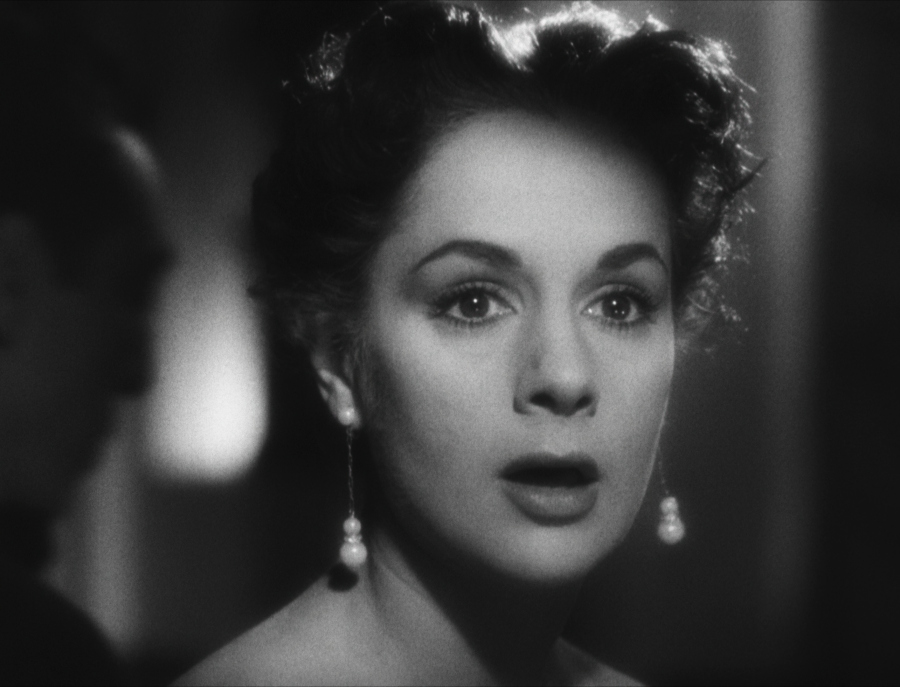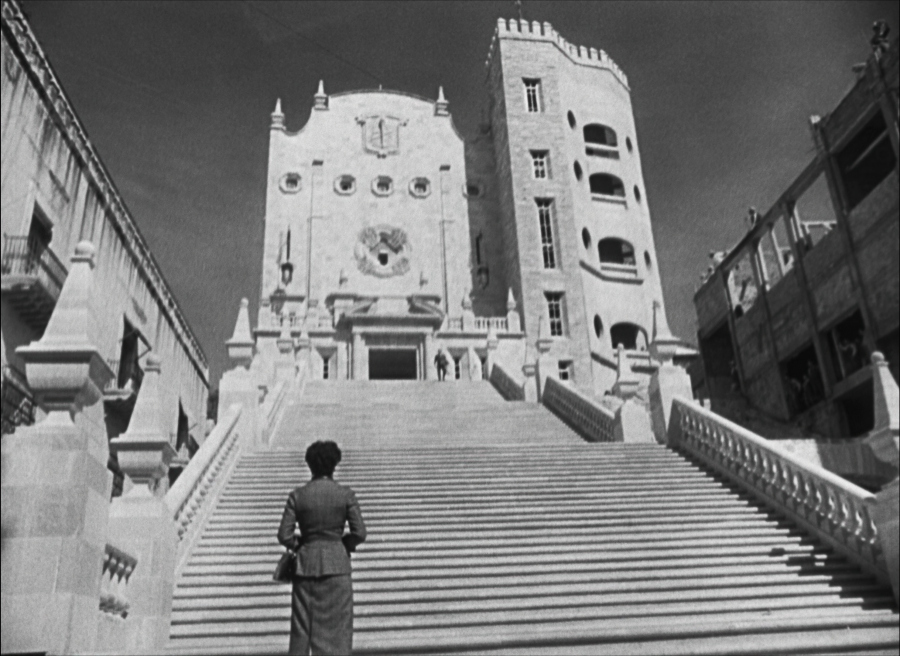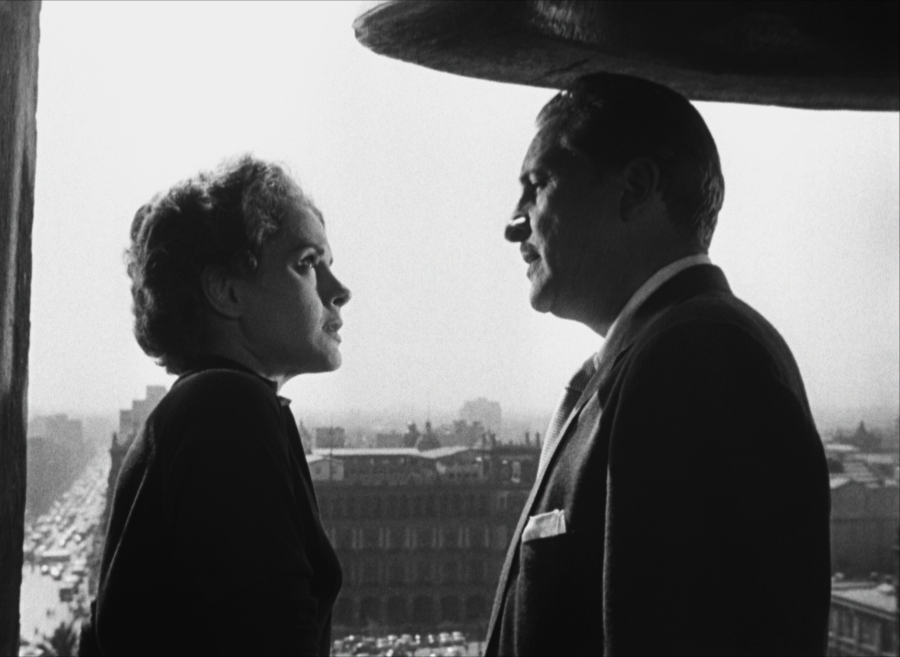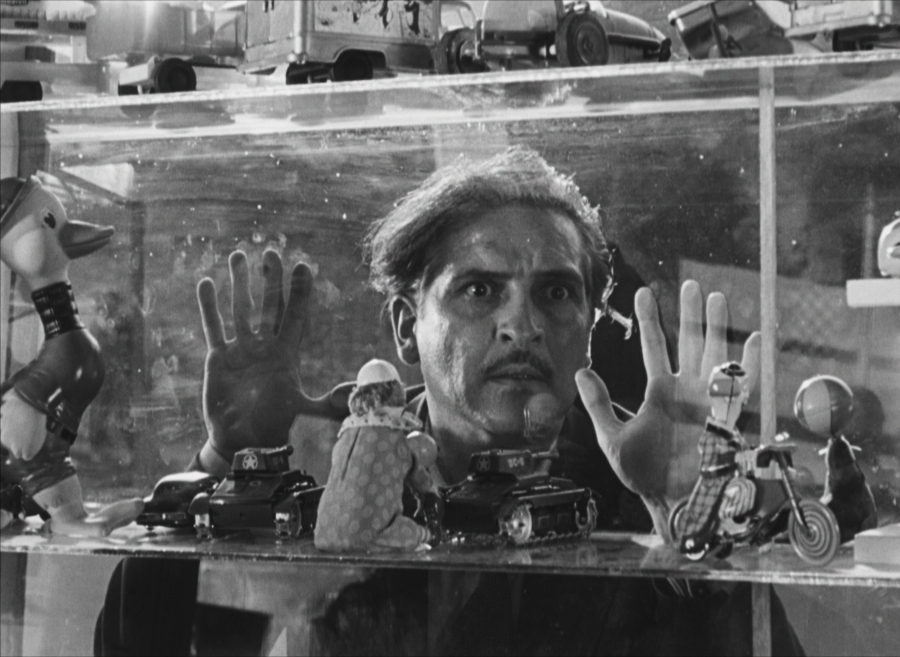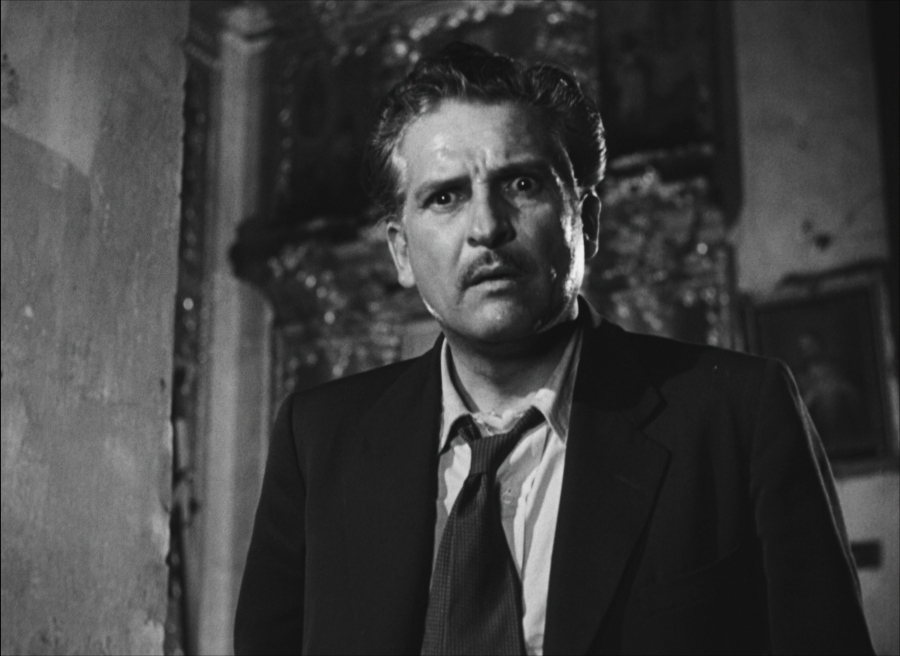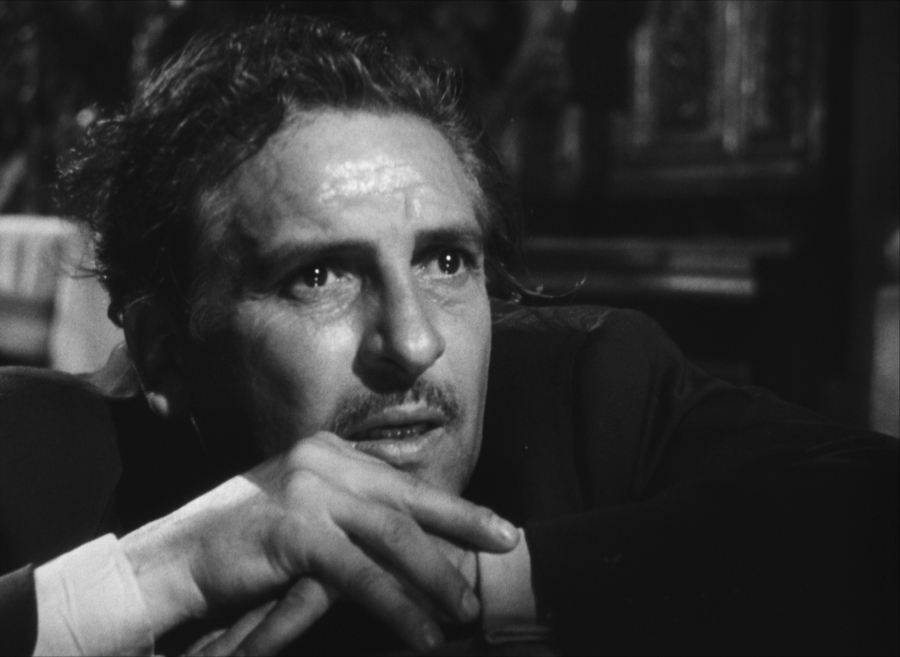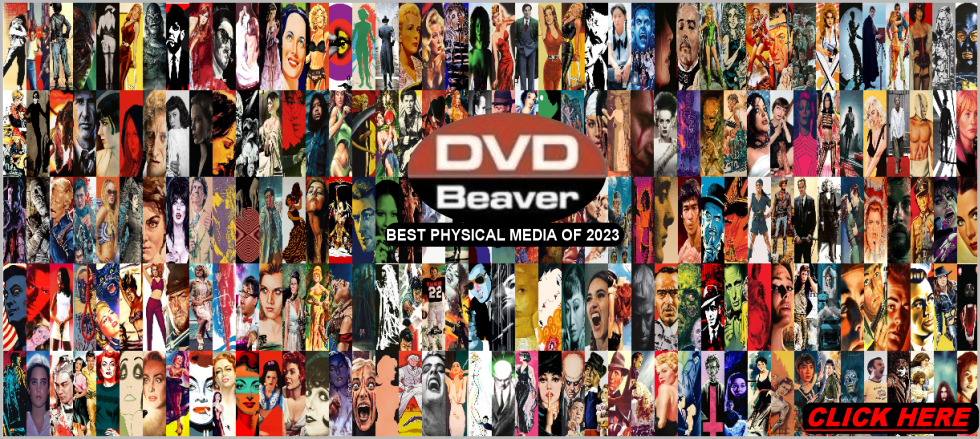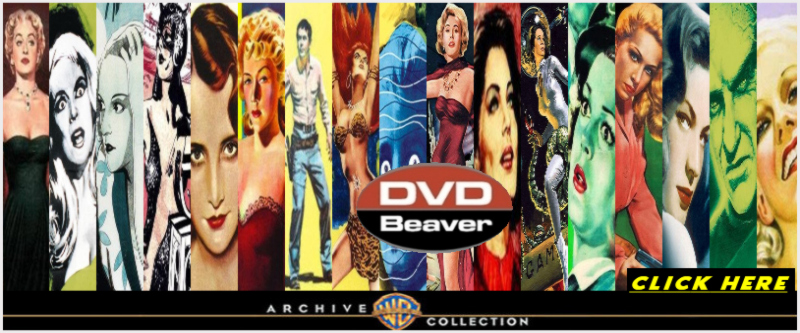|
An
enormous, sincere thank you to our phenomenal
Patreon
supporters! Your unshakable dedication is the bedrock that keeps DVDBeaver
going - we’d be lost without you. Did you know? Our patrons include a
director, writer, editor, and producer with honors like Academy Awards for
Best Picture and Best Director, a Pulitzer Prize-winning screenwriter, and a
Golden Globe-winning filmmaker, to name a few! Sadly, DVDBeaver has reached a breaking point where our existence hangs in the balance. We’re now reaching out to YOU with a plea for help. Please consider pitching in just a few dollars a month - think of it as the price of a coffee or some spare change - to keep us bringing you in-depth reviews, current calendar updates, and detailed comparisons. I’m am indebted to your generosity! |
![]()
![]()

![]()
![]()
|
Search DVDBeaver |
S E A R C H D V D B e a v e r |
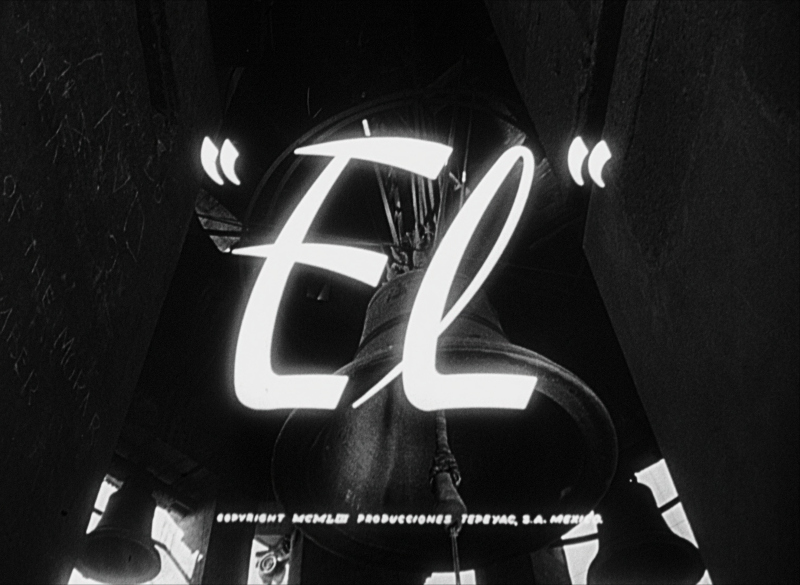
(aka "Él" or "Torments" or "This Strange Passion")
|
Spanish surrealist master Luis Buñuel’s fiendish tale of love gone wrong is among the most perverse and unsettling films he made during his two decades of exile in Mexico. Folding his own neuroses into an adaptation of Mercedes Pinto’s autobiographical novel, Buñuel crafts an expressionistically stylized nightmare in which a young woman (Delia Garcés) discovers that the outward sophistication of her new husband (Arturo de Córdova) masks disturbing depths of jealousy and paranoia. A characteristically raw indictment of religious and social hypocrisy, Él stands as the director’s greatest excursion into melodrama, a vivid portrayal of society’s inability to restrain the irrational urges of the human id. *** Luis Buñuel’s Él (1953), often translated as This Strange Passion, is one of the most surgically precise portraits of pathological jealousy ever put on film. Arturo de Córdova plays Francisco, a wealthy, devout Mexican gentleman whose polished exterior conceals a volcanic paranoia that erupts the moment he marries the serene, beautiful Gloria (Delia Garcés). What begins as an almost comically exaggerated courtship—Francisco first spots her feet beneath a church pew during foot-washing rites on Holy Thursday—rapidly curdles into a suffocating nightmare of suspicion, control, and religious mania. Buñuel, working in Mexico at the height of his creative powers, strips away every romantic illusion to expose the toxic masculinity and Catholic repression; the film’s surreal touches (a bell rope that becomes a noose, a needle pulled through a church tower) feel less like dream sequences than logical extensions of Francisco’s deranged psyche. Rarely has a film so coldly and hilariously shown how erotic obsession and pious self-regard can fuse into the same murderous impulse, making Él not only one of Buñuel’s most perfectly constructed works but one of the cruelest love stories in cinema. |
Posters
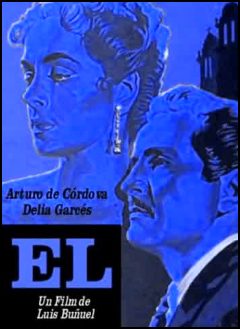 |
 |
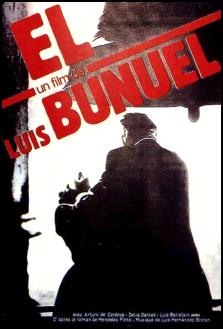 |
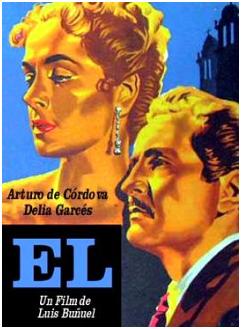 |
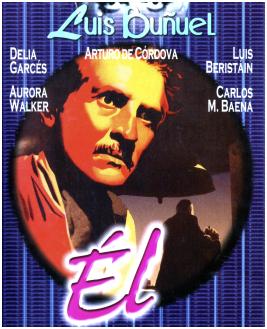 |
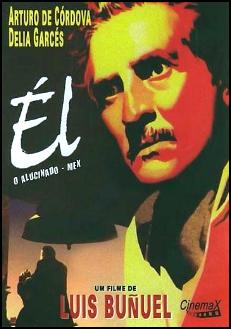 |
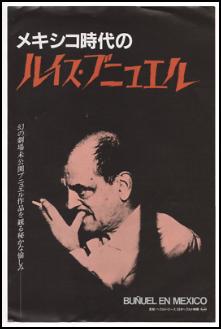 |
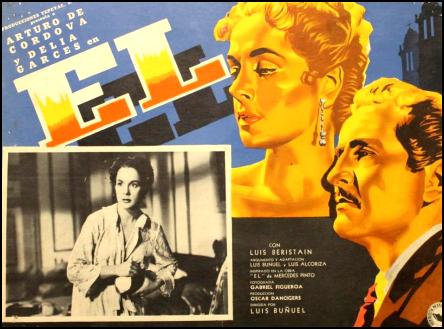 |
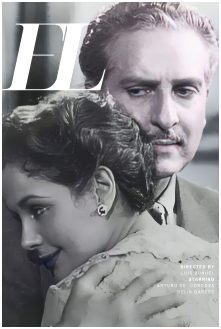 |
Theatrical Release: April 1953 (Cannes Film Festival)
Review: Criterion - Region FREE - 4K UHD
| Box Cover |
|
CLICK to order from: 4K UHD Blu-ray BONUS CAPTURES: |
| Distribution | Criterion Spine #1289 - Region FREE - 4K UHD | |
| Runtime | 1:33:08.874 | |
| Video |
1.37:1 1080P Dual-layered Blu-ray Disc Size: 47,644,753,894 bytesFeature: 27,738,943,488 bytesVideo Bitrate: 35.59 MbpsCodec: MPEG-4 AVC Video |
1.37:1 2160P
4K UHD Disc Size: 64,285,564,000 bytes Feature: 60,893,084,352 bytes Video Bitrate: 81.07 Mbps Codec: HEVC Video |
|
NOTE: The Vertical axis represents the bits transferred per second. The Horizontal is the time in minutes. |
||
| Bitrate Blu-ray: |
|
|
| Bitrate 4K UHD: |
|
|
| Audio |
LPCM Audio Spanish 1152 kbps 1.0 / 48 kHz / 1152 kbps / 24-bit |
|
| Subtitles | English, None | |
| Features |
Release Information: Studio: Criterion
1.37:1 2160P
4K UHD
Edition Details: • New video essay on director Luis Buñuel by scholar Jordi Xifra (22:35) • Appreciation by filmmaker Guillermo del Toro (29:52) • Interview with Buñuel from 1981 by writer Jean-Claude Carrière, a longtime collaborator of the director's (30:24) • Panel discussion from 2009, moderated by filmmaker José Luis Garci (1:00:09) • Trailer (1:26) PLUS: An essay by critic Fernanda Solórzano and an interview with Buñuel by critics José de la Colina and Tomás Pérez Turrent
Transparent 4K UHD Case Chapters 15 |
|
Recommended Reading for Buñuel Fans (CLICK COVERS or TITLES for more information)
 |
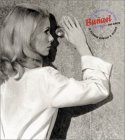 |
 |
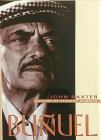 |
 |
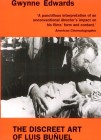 |
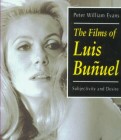 |
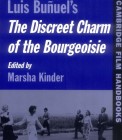 |
|
My Last Sigh by Luis Bunuel, Abigail Israel |
Buñuel: 100 Years: It's Dangerous to Look Inside by Enrique Camacho |
An Unspeakable Betrayal:
Selected Writings of Luis Bunuel by Jean-Claude Carriere |
Bunuel by John Baxter |
Luis Bunuel : New Readings by Peter William Evans |
The Discreet Art of Luis Bunuel: A
Reading of His Films by Gwynne Edwards |
The Films of Luis
Bunuel: Subjectivity and Desire (Oxford Hispanic
Studies) by Peter William Evans " |
Buñuel's The
Discreet Charm of the Bourgeoisie (Cambridge Film
Handbooks) by Marsha Kinder |
Check out more in "The Library"
| Comments: |
NOTE:
The below
Blu-ray
and
4K UHD
captures were taken directly from the
respective
disc.
Like 4K UHD transfers of The Long Wait, I, the Jury, and many others below, Criterion's 2160P transfer of Luis Buñuel's "Él" does not have HDR applied (no HDR10, HDR10+, nor Dolby Vision.) We have seen many other 4K UHD transfers without HDR; Mondo Macabro's Dr. Jekyll and the Werewolf, Cult Film's Django 4K UHD, Umbrella's 4K UHD transfer of Peter Weir's The Last Wave, Radiance's Palindromes, and Criterion's 4K UHD transfers of Deep Crimson, Killer of Sheep, Chungking Express, Winchester '73, The Mother and the Whore, I Am Cuba, The Others, Rules of the Game, Branded to Kill, In the Mood For Love, Night of the Living Dead, Fires on the Plain, and further examples, Masters of Cinema's The Cabinet of Dr. Caligari and Kino's 4K UHDs of Bob le Flambeur, Last Year at Marienbad, Nostalghia, The Apartment, For a Few Dollars More, A Fistful of Dollars, In the Heat of the Night, and The Good, the Bad and the Ugly, as well as Koch Media's Neon Demon + one of the 4K UHD transfers of Dario Argento's Suspiria.
Before the DVDBeaver website's format was established we reviewed a Mexican
DVD of
Él -
over 20-years ago
HERE.
NOTE: We have added 84 more large
resolution
4K UHD captures (in lossless
PNG format) for DVDBeaver Patrons
HERE
On their
Blu-ray
and 4K UHD,
Criterion use a linear PCM mono track (24-bit) in the
original Spanish language. The uncompressed monaural soundtrack is
presented with crystalline purity - no hiss, no wow, no flutter, just
the dry, airless acoustic of 1950s Mexican high society. Buñuel uses
sound in Él with the same sadistic economy he applies to image.
There is almost no non-diegetic music for the first hour; instead we get
the brittle clink of crystal glasses at dinner parties, the nervous
rustle of silk dresses, the distant murmur of polite conversation that
Francisco increasingly experiences as mocking laughter aimed at him.
Dialogue is anchored dead-center and impeccably clean, allowing every
nervous swallow, every whispered accusation, and sudden outburst to land
with maximum force. The sparse sound design - distant church bells, the
metallic clink of a dropped sewing needle, the hollow echo of footsteps
in an empty mansion - acquires an almost physical weight. Luis Hernández
Bretón’s (Luis Buñuel's
Illusion Travels by
Streetcar, Arturo Ripstein's
La tía Alejandra,
Miguel Morayta's The
Bloody Vampire) occasional salon waltzes sound deliberately
tinny and dated, heightening the sense of emotional suffocation. This is
not a track that will rattle your subwoofer, but it is a precisely
engineered mono mix; the silence between sounds is often more
uncomfortable than the sounds themselves. Criterion offer optional English
subtitles on their Region 'A'
Blu-ray
and Region FREE
4K UHD.
The Criterion
4K UHD
Luis Buñuel's Él
is one of the cruelest, most clinically precise films ever made about
erotic obsession. Shot in a mere nineteen days on a modest budget during
Buñuel’s Mexican period, it remains, alongside
Los Olvidados and
The Exterminating Angel, one of the peaks of his career. Adapted
from a 1926
autobiographical novel by the Spanish-Uruguayan writer Mercedes Pinto
(Merceditas) Pinto, the film transposes the action from 1920s Madrid to
1950s Mexico City without losing a particle of the original’s venom.
What Buñuel achieves is nothing less than a secular exorcism: he exposes
the infernal fusion of Catholic guilt, patriarchal entitlement, and
sexual paranoia that turns bourgeois marriage into a torture chamber.
Buñuel structures the film as a slow tightening of the noose. The first
hour plays almost like a conventional melodrama of manners, lulling the
audience into thinking they are watching a portrait of an “eccentric”
husband. Then, imperceptibly, the surreal intrudes - not through the
oneiric set pieces of
Un chien andalou or
L’Âge d’or, but through the terrifying logic of Francisco’s own
psyche. When he imagines hearing laughter behind walls, Buñuel gives us
a brief, disorienting sound mix that makes us question whether the
laughter is real or not - until we realize the only madness is
Francisco’s. Rarely has a film so completely stripped love of its
romantic illusions while remaining so bitterly funny. Él is not a
tragedy; it is a comedy of damnation, and its laughter sticks in the
throat. Seventy years later, it remains Buñuel’s most unflinching
portrait of the bourgeois male id - and one of the most essential films
ever made about how desire, when poisoned by power, becomes
indistinguishable from the will to destroy. This 4K UHD
release transforms a longtime cult masterpiece into an essential, urgent
viewing experience. If you are keen on Buñuel, Figueroa, or the cinema
of psychological cruelty, this belongs on your shelf. Absolutely
recommended. |
Final Scene trivia
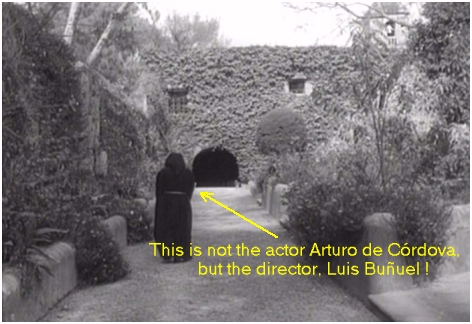 |
Menus / Extras
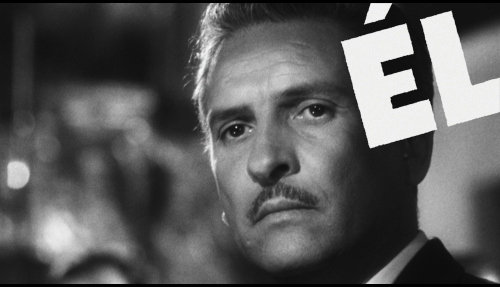 |
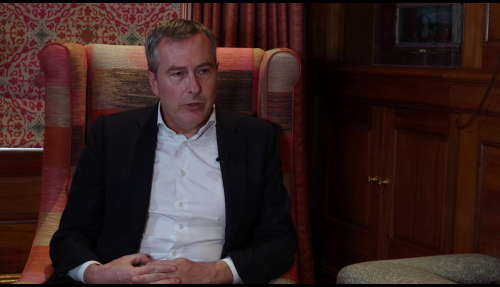 |
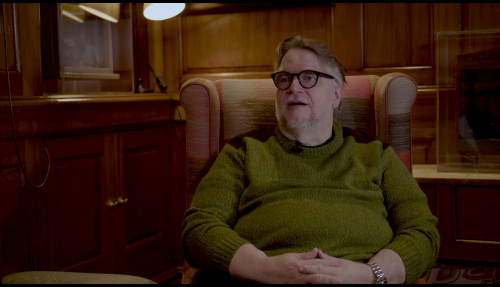 |
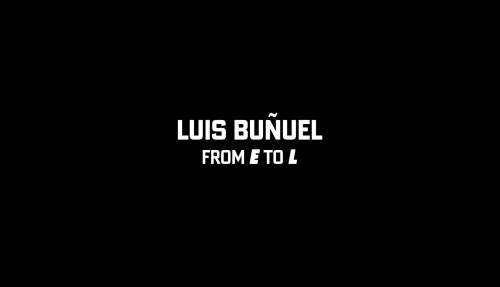 |
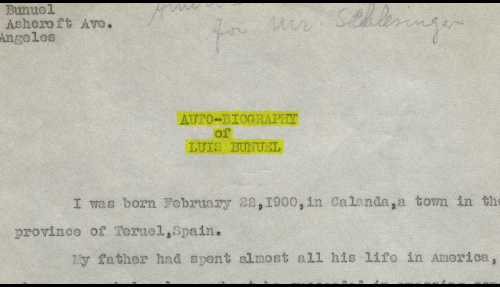 |
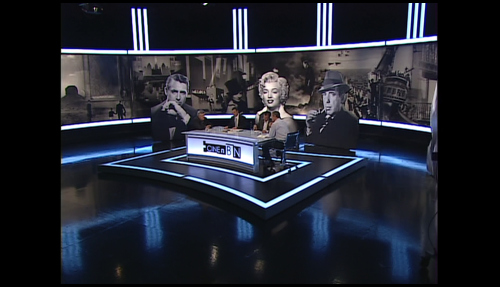 |
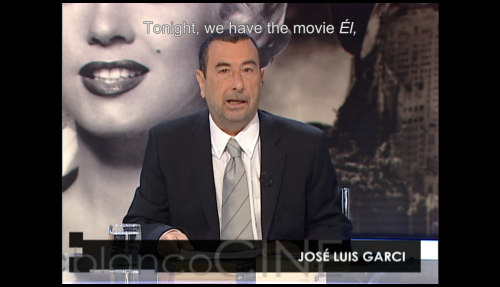 |
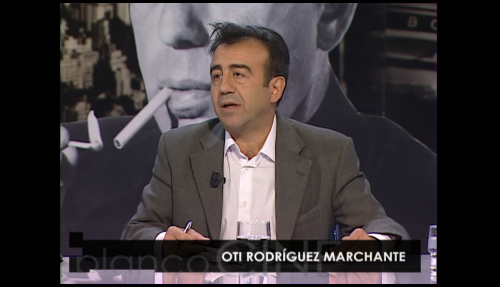 |
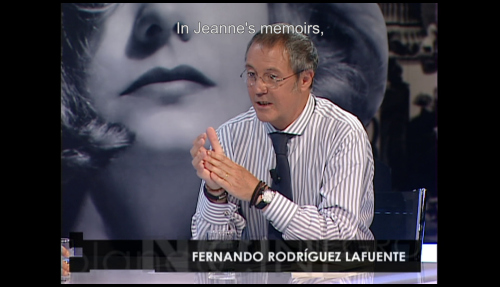 |
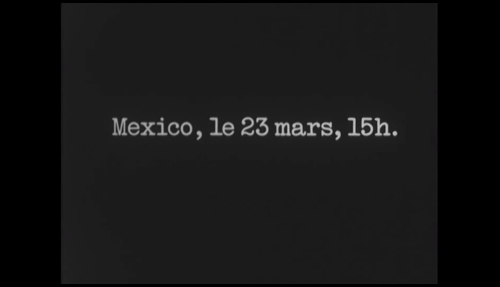 |
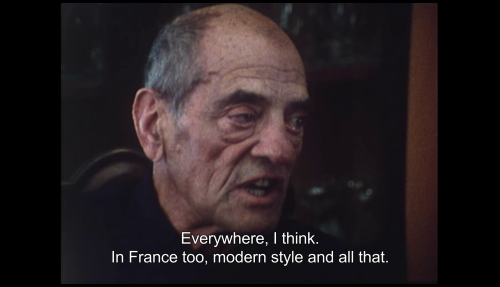 |
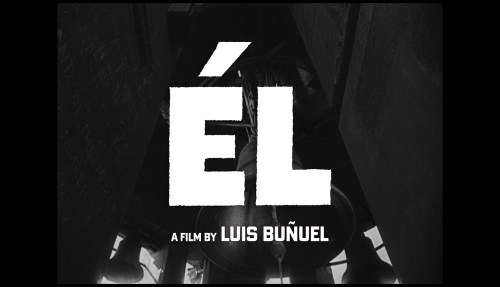 |
CLICK EACH BLU-RAY and 4K UHD CAPTURE TO SEE ALL IMAGES IN FULL RESOLUTION
More full resolution (3840 X 2160) 4K Ultra HD Captures for Patreon Supporters HERE
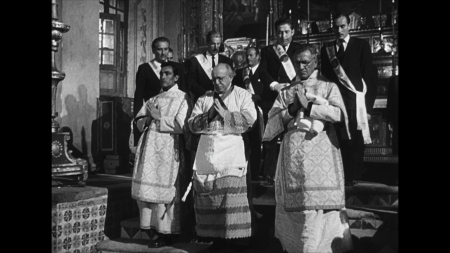 |
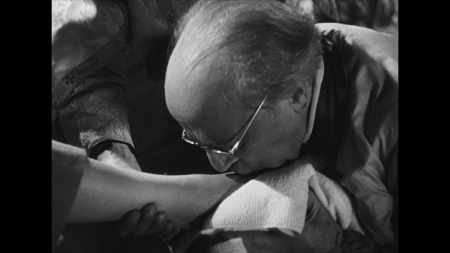 |
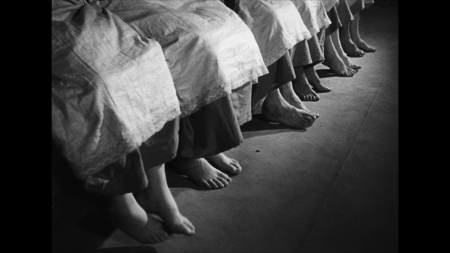 |
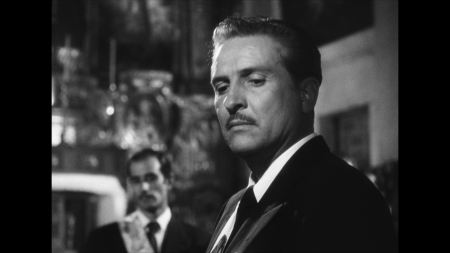 |
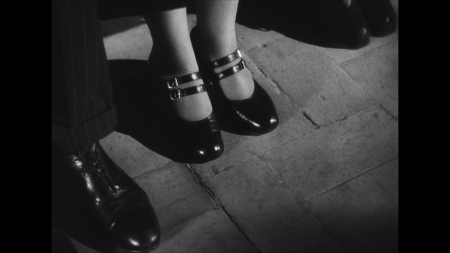 |
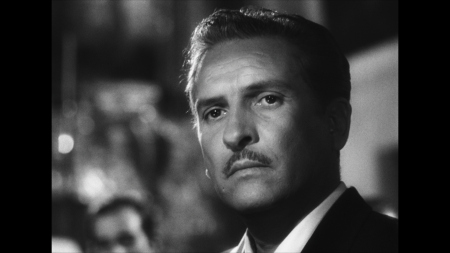 |
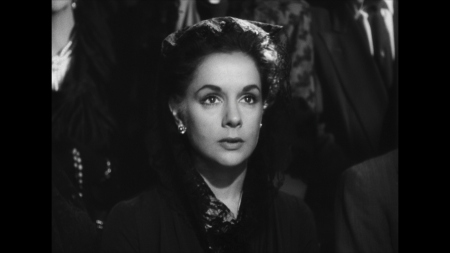 |
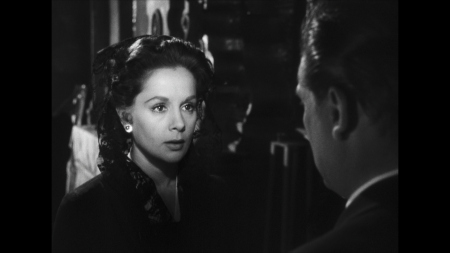 |
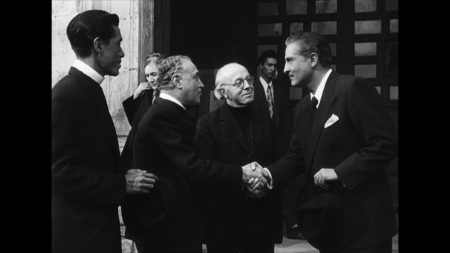 |
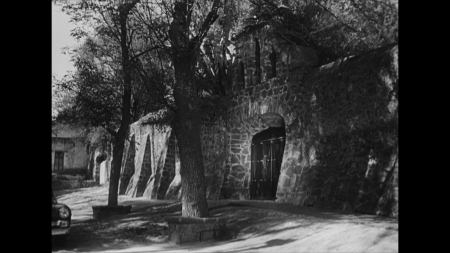 |
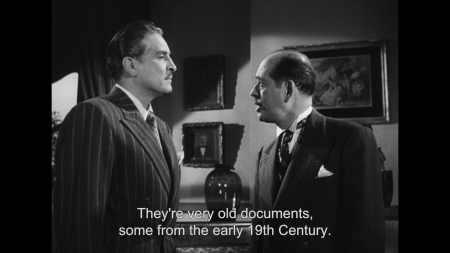 |
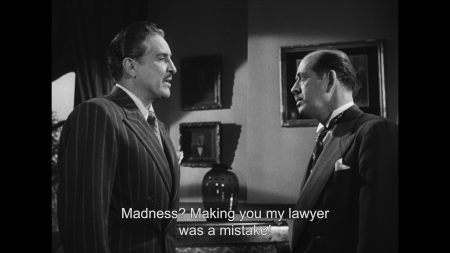 |
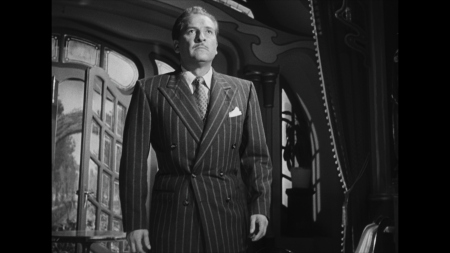 |
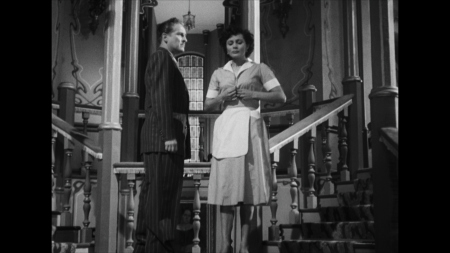 |
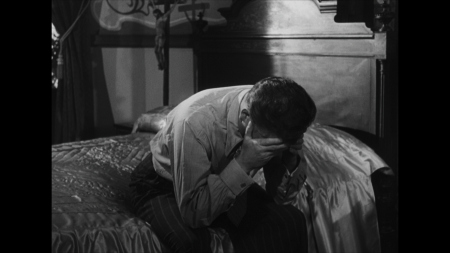 |
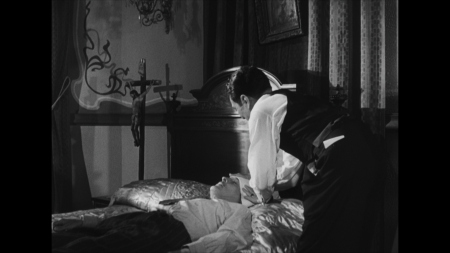 |
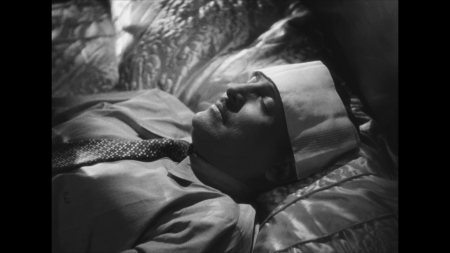 |
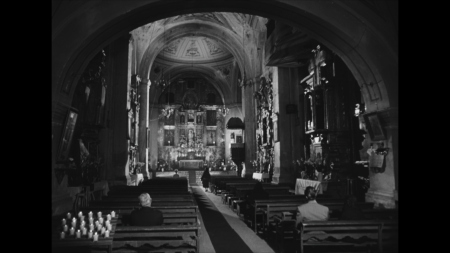 |
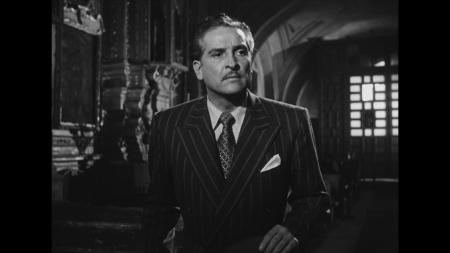 |
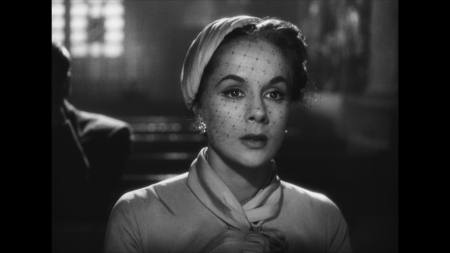 |
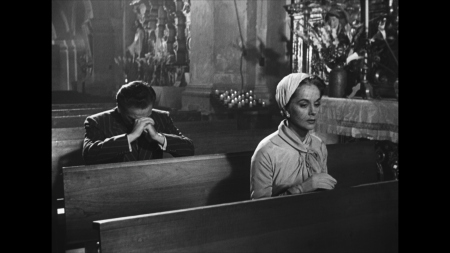 |
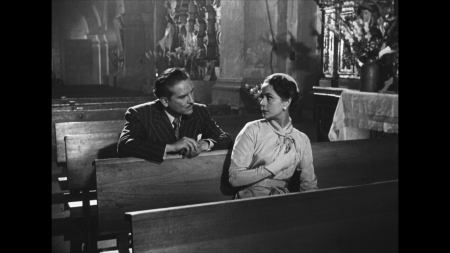 |
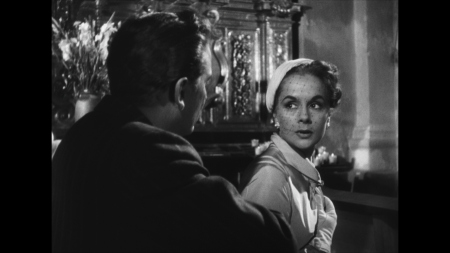 |
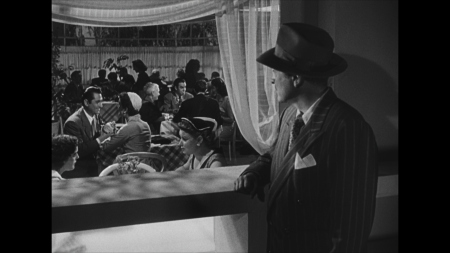 |
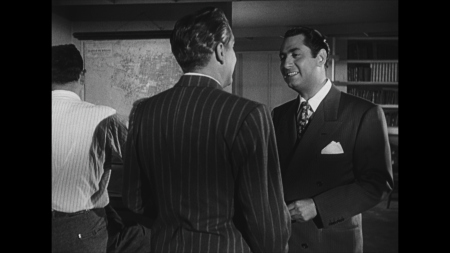 |
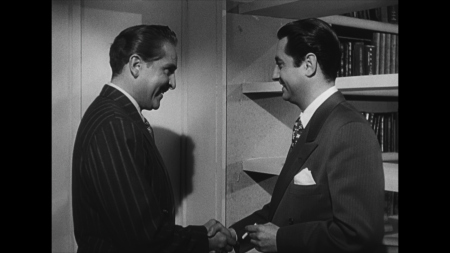 |
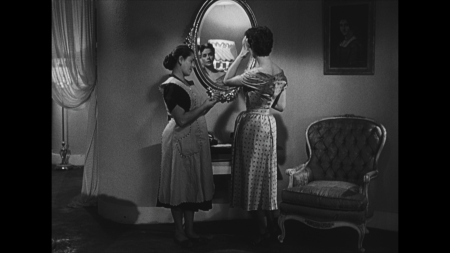 |
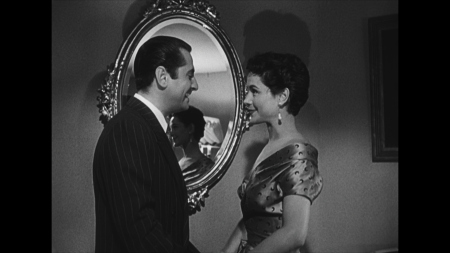 |
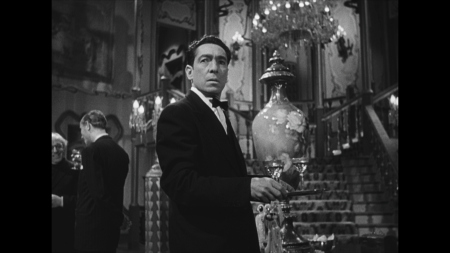 |
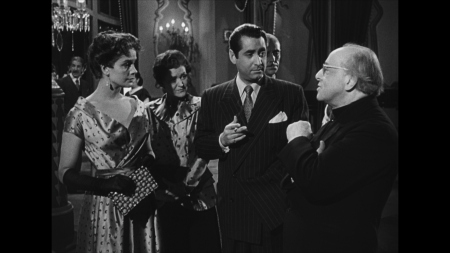 |
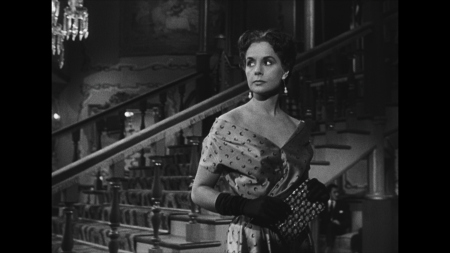 |
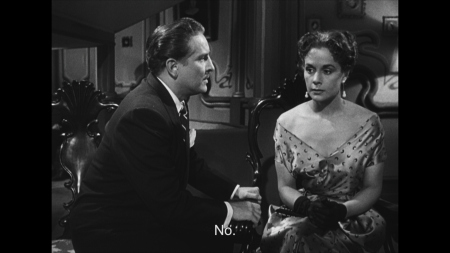 |
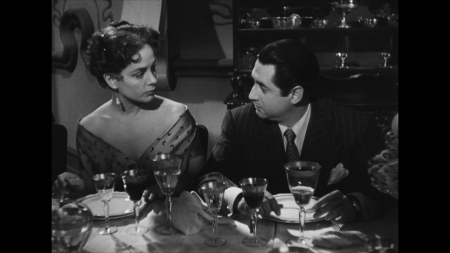 |
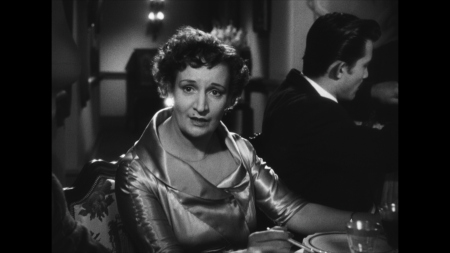 |
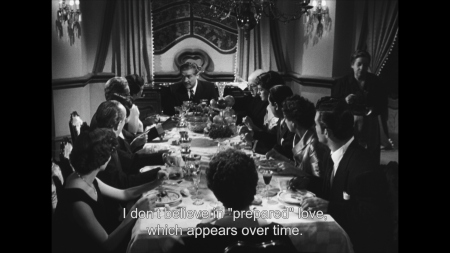 |
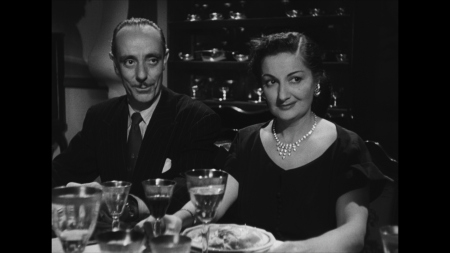 |
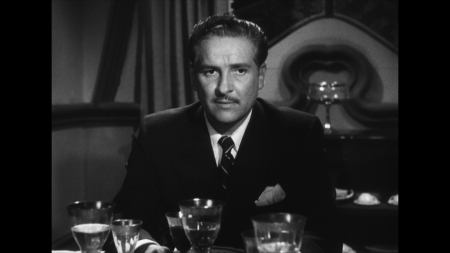 |
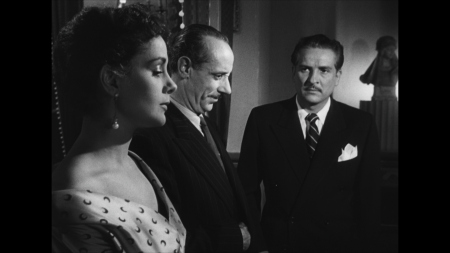 |
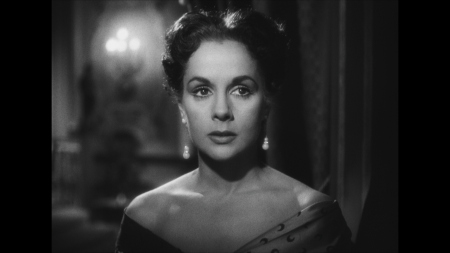 |
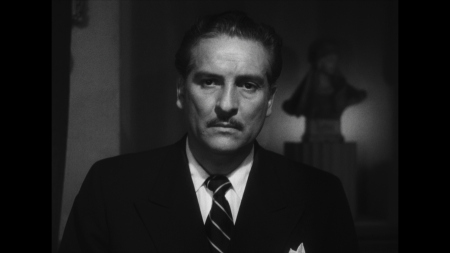 |
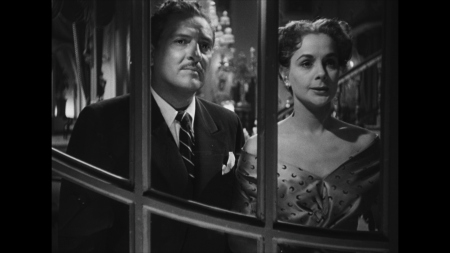 |
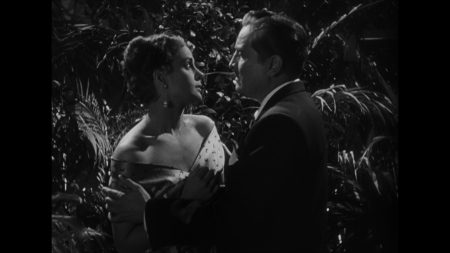 |
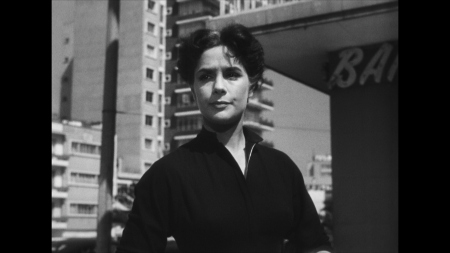 |
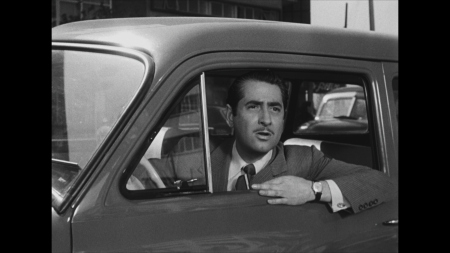 |
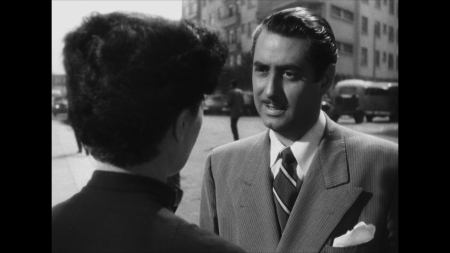 |
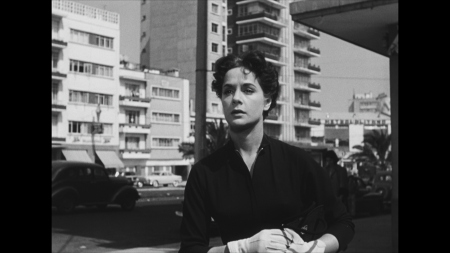 |
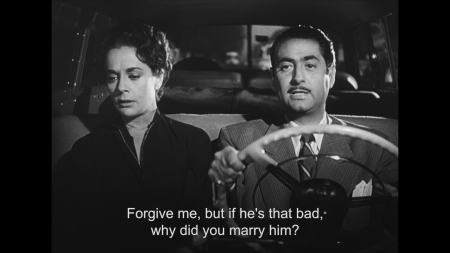 |
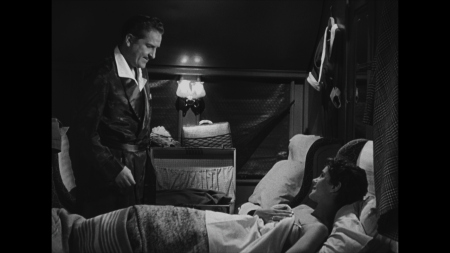 |
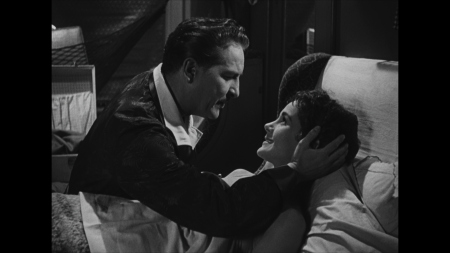 |
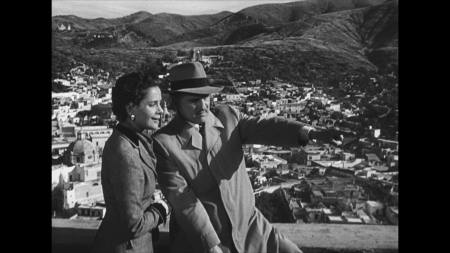 |
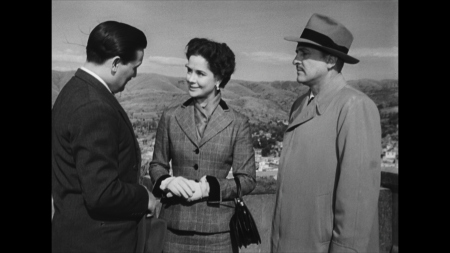 |
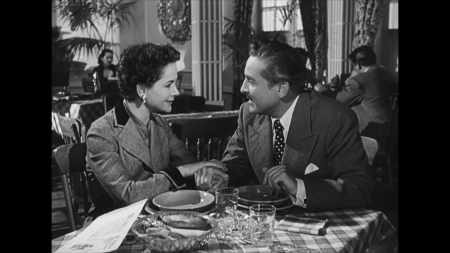 |
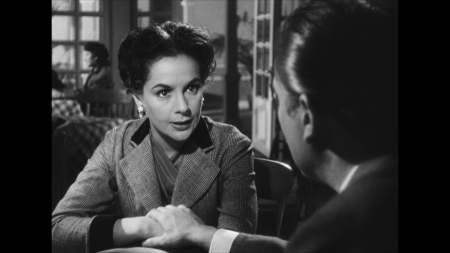 |
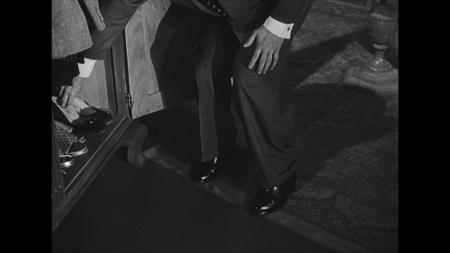 |
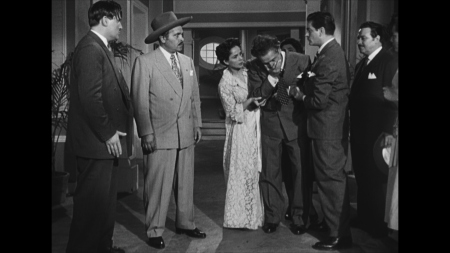 |
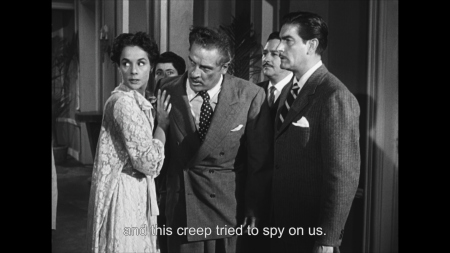 |
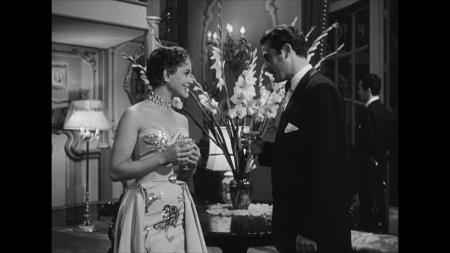 |
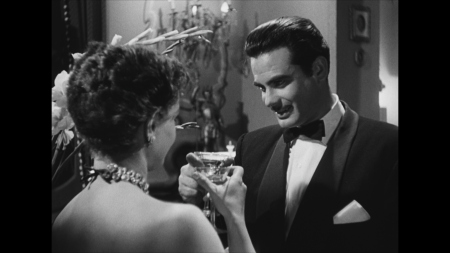 |
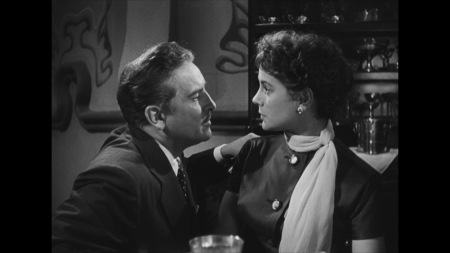 |
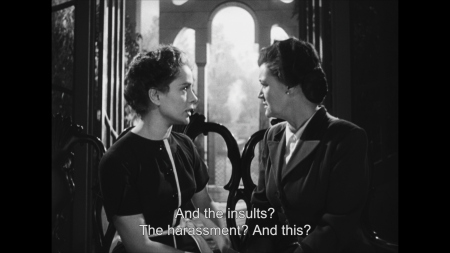 |
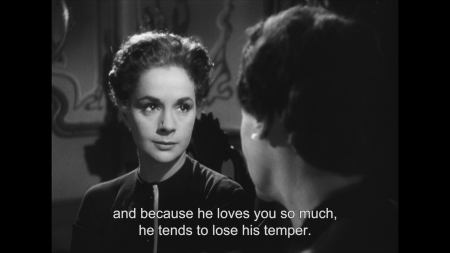 |
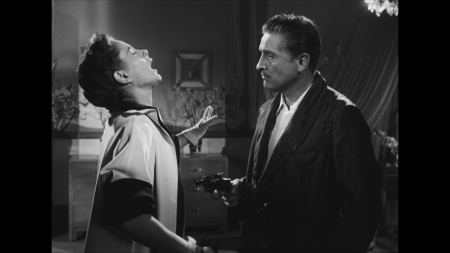 |
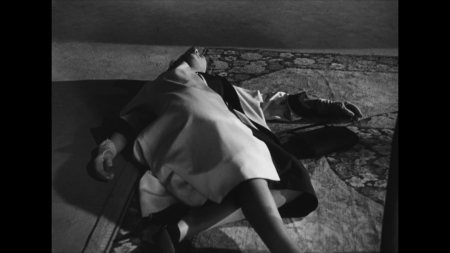 |
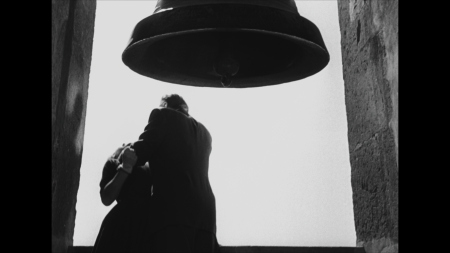 |
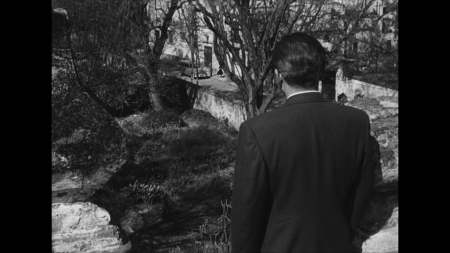 |
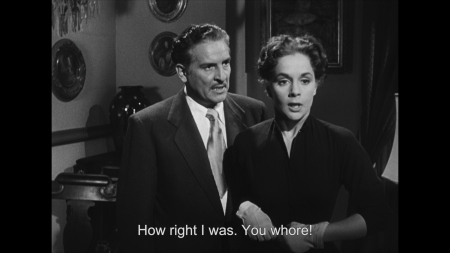 |
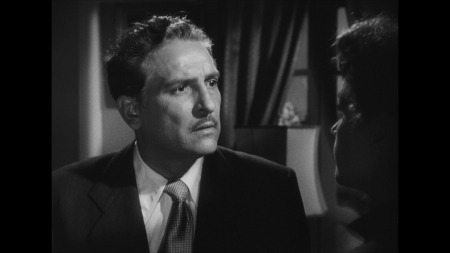 |
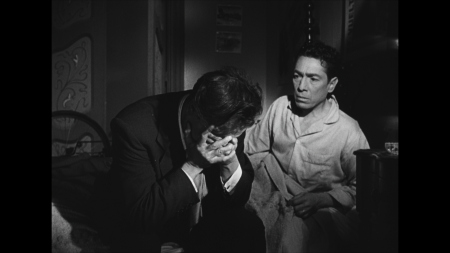 |
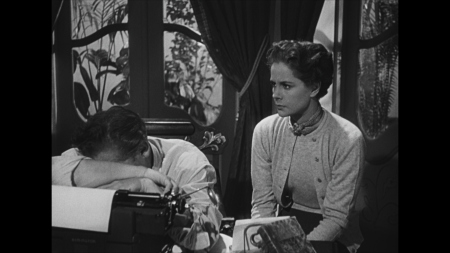 |
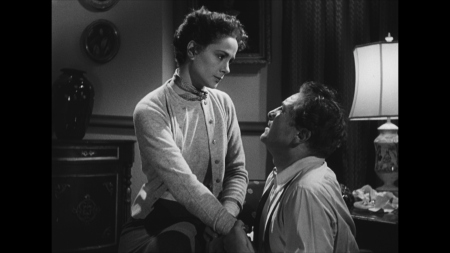 |
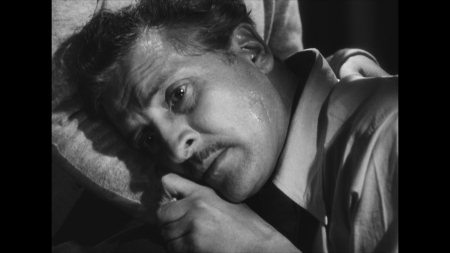 |
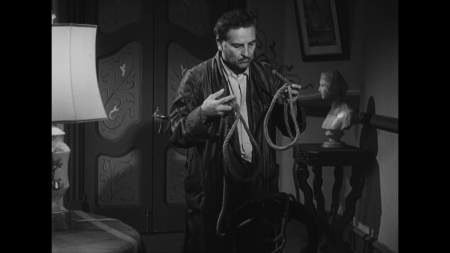 |
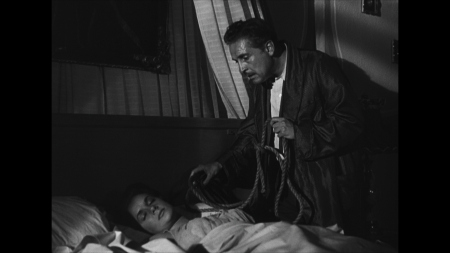 |
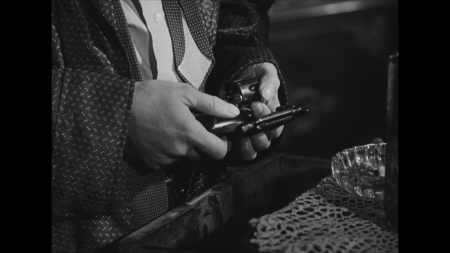 |
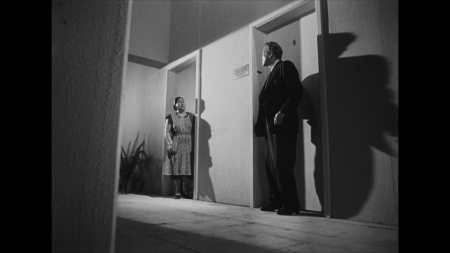 |
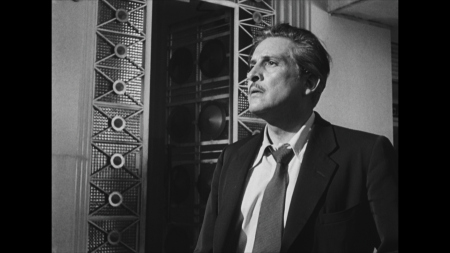 |
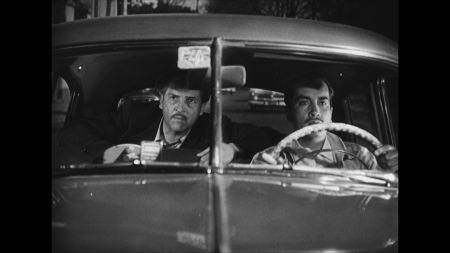 |
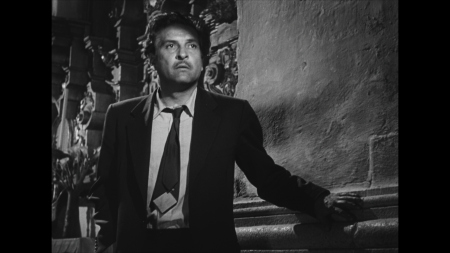 |
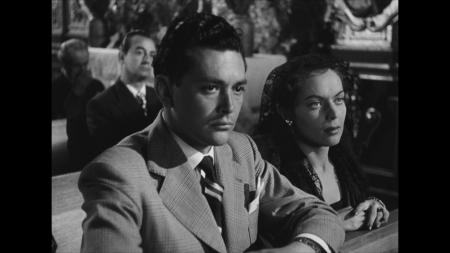 |
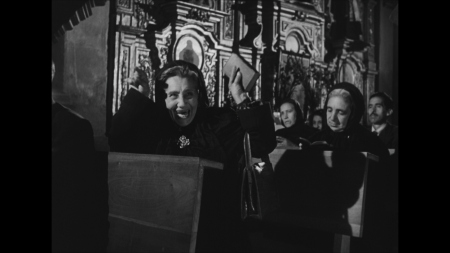 |
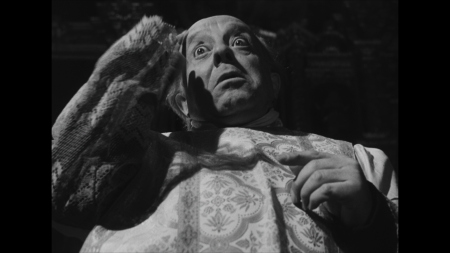 |
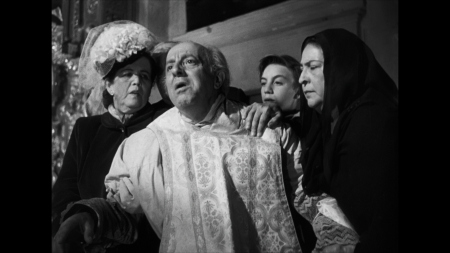 |
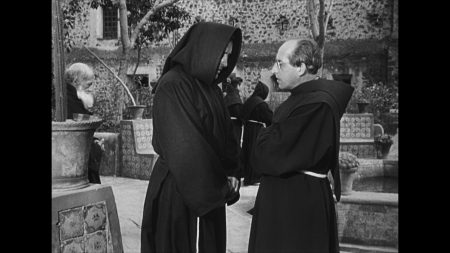 |
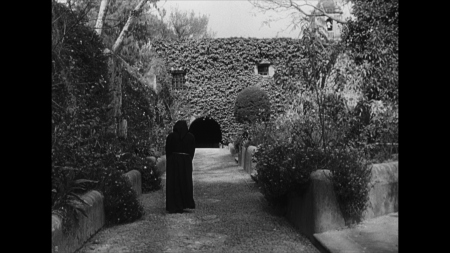 |
| Box Cover |
|
CLICK to order from: 4K UHD Blu-ray BONUS CAPTURES: |
| Distribution | Criterion Spine #1289 - Region FREE - 4K UHD | |
![]()
![]()

![]()
![]()
|
Search DVDBeaver |
S E A R C H D V D B e a v e r |


